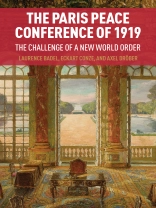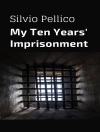For more than a century, the Paris Peace Conference of 1919 has remained an object of historical scrutiny. As an attempt to consolidate peace in the wake of World War I and to prevent future conflict, it was instrumental in shaping political and social dynamics both nationally and internationally. Yet, in spite of its implications for global conflict, little consideration has been given to the way the Paris Peace Conference constructed a new global order. In this illuminating and geographically wide-ranging reassessment, The Paris Peace Conference of 1919 reconsiders how this watershed event, its diplomatic negotiations and the peace treaties themselves gave rise to new dynamics of global power and politics. In doing so it highlights the way in which the forces of nationality and imperiality interacted with, and were reshaped by, the peace.
Innehållsförteckning
List of Illustrations
Introduction: Paris 1919: The Challenge of a New World Order
Laurence Badel, Eckart Conze and Axel Dröber
Part I: Transformations of Legal Order
Chapter 1. The Order of Versailles: A Peace for Law and Justice?
Vincent Laniol
Chapter 2. Purging the Dross? German International Law Scholars on the Treaty of Versailles and the Post-War Order
Miloš Vec
Chapter 3. The Subversive Internationalist: Japanese Responses to the Paris Peace Conference and Their Impact on Its Interwar and Wartime Political Performance
Urs Matthias Zachmann
Part II: Economy and Technology: New Actors and Institutions
Chapter 4. When the World Economy Came into Being: The Supreme Economic Council and the Establishment of World Economic Statistics
Martin Bemmann
Chapter 5. The Treaty of Versailles and Transatlantic Telecommunications: Technical Diplomacy, Sortie de Guerre and a New Techno-Strategic Paradigm
Pascal Griset
Chapter 6. The International Chamber of Commerce: Multilateralism and the Invention of International Commercial Arbitration
Jérôme Sgard
Part III: Regional Order, International Order
Chapter 7. Regional Disorder, Partial Sovereignty and Multilevel Negotiations: The Caucasus, 1917-20
Etienne Forestier-Peyrat
Chapter 8. Longing for Greatness: Brazil at the Paris Peace Conference of 1919
Thomas Fischer
Chapter 9. Washington of the World, Vatican of the East: Imagining Istanbul in a New Global Order
Carolin Liebisch-Gümüş
Part IV: Challenges of the Paris Order
Chapter 10. Cultural Modernity, Political Maturity and Modern Womanhood: Soumay Tcheng’s Feminist Diplomacy at the Paris Peace Conference
Mona Siegel
Chapter 11. A Conference for Africa? Racialization and the New World Order in 1919
Emmanuelle Sibeud
Chapter 12. Woodrow Wilson and His Domestic Critics: The United States and the World Order after the Great War
Manfred Berg
Chapter 13. The Paris Moment: Experiences of War and Challenges of Peace, 1919-20
Eckart Conze
Conclusion: Paris 1919: Perspectives and Boundaries of Internationalization
Laurence Badel, Eckart Conze and Axel Dröber
Index
Om författaren
Axel Dröber is lecturer at Sorbonne Université. He studies nineteenth and twentieth-century Western European history, with a focus on the history of public security and the state monopoly on violence in post-revolutionary Europe. He published a book-length study on the National Guard during the Restoration and the July Monarchy in France (Nation, Militär und Gesellschaft, Hei UP, 2022) and is currently working on the topic of migration and citizenship after the First World War.












